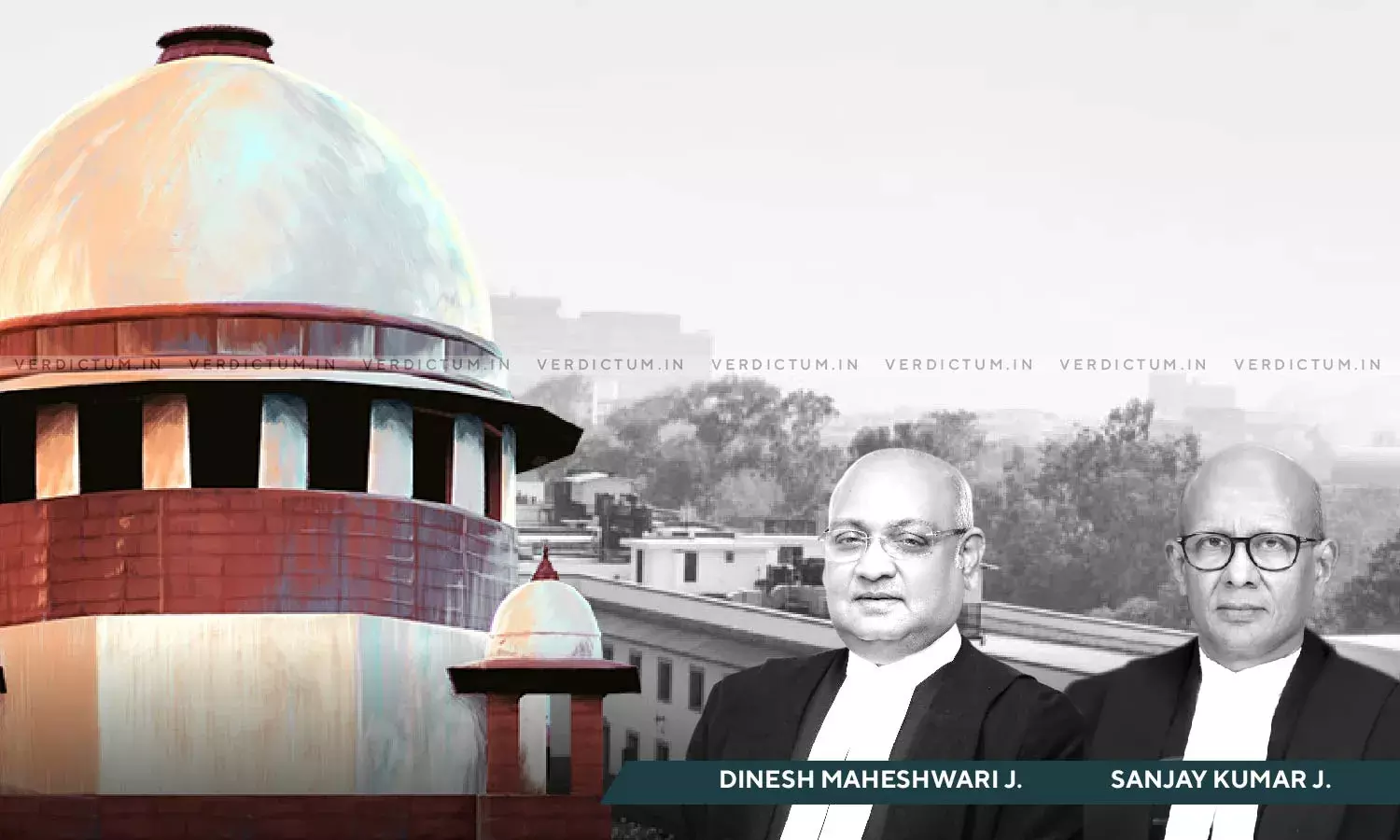Tamil Nadu Highways Act, 2001 Cannot Be Invalidated On Ground That Its Provisions Manifest Discrimination Or Arbitrariness: SC Holds

The Supreme Court has recently upheld the validity of the Tamil Nadu Highways Act, 2001 saying that such an Act is not liable to be invalidated on the ground that its provisions manifest discrimination or arbitrariness.
The two-Judge Bench comprising Justice Dinesh Maheshwari and Justice Sanjay Kumar observed, “… there is no possibility of the State of Tamil Nadu exercising arbitrary discretion in adopting one legislation or the other for the purpose of acquiring lands, as contended by the learned counsel. Sections 3, 7 and 11 of the Validation Act of 2019 expressly exclude the operation of the new LA Act for the purposes contained in the State Acts which stood revived owing to the assent of the President of India. … The Tamil Nadu Highways Act, 2001, is not liable to be invalidated on the ground that its provisions manifest discrimination or arbitrariness when compared with the provisions of the Right to Fair Compensation and Transparency in Land Acquisition; Rehabilitation and Resettlement Act, 2013.”
The Bench held that the State of Tamil Nadu would be bound to apply only the Highways Act for acquiring lands for the purposes reserved thereunder.
Advocates Suhrith Parthasarathy and N. Subramaniyan appeared for the appellants while Senior Advocates K.K. Venugopal and V Krishnamurthy and AAG Amit Anand Tiwari appeared for the respondents.
In this case, an appeal was filed by the appellants challenging the judgment passed by the Madras High Court whereby it upheld the validity of the Tamil Nadu Highways Act saying that it did not suffer from any inherent arbitrariness. During the course of such an appeal, the State of Tamil Nadu had passed a Validation Act for which the President gave his assent.
The appellants prayed before the High Court that the authorities be directed to return the land seeking a declaration that the Act was ultra vires the Constitution and a consequential direction that the authorities do not acquire the lands. The writ petitions preferred by the appellants were partly allowed by the Division Bench.
The Supreme Court after hearing the contentions of the counsel noted, “… ordinarily, the equality clause enshrined in Article 14 of the Constitution cannot be invoked in the matter of enforcement of a State legislation vis-à-vis Parliamentary legislation and/or legislation of another State. … We are, therefore, not inclined to entertain the attack launched against the Highways Act on the strength of the so-called disparity and discrimination in the norms and procedures prescribed therein when compared with the new LA Act. In this regard, we may point out that the Highways Act in the State of Tamil Nadu stood protected even at the time the old LA Act was in force and effect, owing to the Presidential assent that it had received under Article 254(2) of the Constitution, and it continued to operate and provide altogether different yardsticks for acquisition of land and payment of compensation till the advent of the new LA Act.”
The Court asserted that the whole exercise of pointing out any repugnancy after a validating act has obtained the assent of the President is otiose for the whole purpose of Article 254(2) of the Constitution is to resuscitate and operationalize a repugnant Act or repugnant provisions of such Act.
“No doubt, the scheme of the new LA Act advocates timely measures being adopted in implementation of the acquisition and such general temporal restrictions would benefit the land owners, but the absence of such restrictions in the Highways Act may not be reason enough to invalidate it, as the very premise on which the Highways Acts was enacted by the State of Tamil Nadu was to cut down on time-consuming processes”, said the Court.
The Court also observed that a particular instance or a stray case, involving some delay in the acquisition of land under the Highways Act, may have to be dealt with on its own individual merits but that would not be sufficient to invalidate the legislation itself.
Accordingly, the Apex Court dismissed the appeals.
Cause Title- C.S. Gopalakrishnan Etc. v. The State of Tamil Nadu & Others


